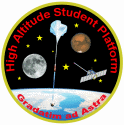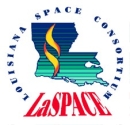



Payload 02 Information
Payload Flight Number:
Institution:
Payload Title:
Stratospheric On-board Laminar-flow Acidic Reduction Inspection System (SOLARIS)
Student Leader:
Faculty Advisor:
Payload class:
Small
Payload ID Number:
02
Mass:
Current:
Serial Downlink:
Analog Downlink:
Serial Commands:
Discrete Commands:
Payload Specification & Integration Plan
Due: 06/22/2018
Delivered:
Payload Integration Certification
Scheduled: 07/27/2018
Actual:
Flight Operation Plan
Due: 07/19/2018
Delivered:
Final Flight / Science Report
Due: 12/07/2018
Delivered:
Abstract:
Increased human activity after the industrial revolution has begun to alter the natural balance of our environment. Pollutants from transportation, manufacturing, and decomposition have been infiltrating the atmosphere with a haze of acids that find their way into the stratosphere. It is here that the gaseous acids react with sunlight and a redox reaction occurs that breaks down ozone. Over time this has created a thinner ozone layer and the products of these reactions remain in the atmosphere, creating a barrier from which less and less heat can escape. New insights into geo-engineering are discovering what intervention, if any, can be performed to help reduce these pollutants in the stratosphere. Pulling inspiration from SCoPEx - an experiment from Harvard set to launch in 2020 - SOLARIS aims to explore alternate delivery systems and testing platforms that use common substances as a base to neutralize the harmful acid products. The team’s objective is to contribute to ongoing research in this emerging field by actively experimenting in stratospheric conditions in ways never before tested. The NASA HASP 2018 program will provide an opportunity to test a developing hypothesis while collecting valuable data that will aid in a better understanding of the stratosphere environment, the processes that contribute to the destruction of ozone, and perhaps a viable solution into mitigating the effects of climate change.
Payload Integration Plan:
|